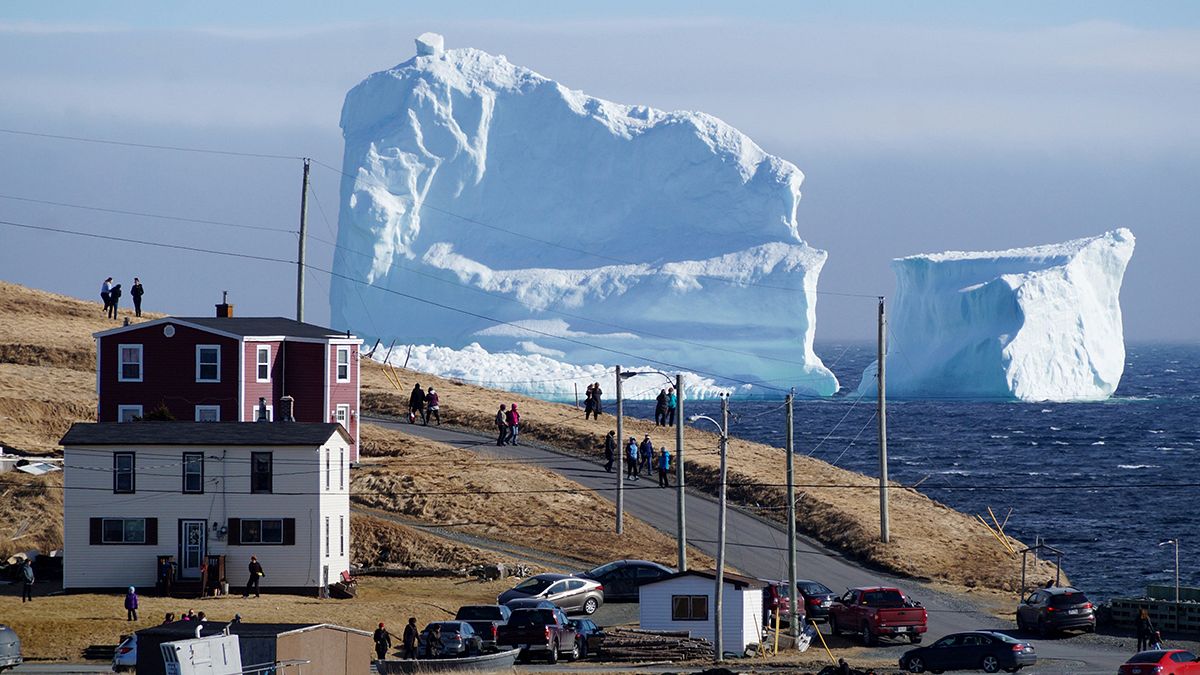Unusually large icebergs have broken off the Arctic shelf and floated south, coming close to the Canadian shore, posing shipping and fishing hazards, but proving to be a big tourist draw.
The splintering Arctic icepack is causing serious concern in the fishing grounds and shipping lanes off the Canadian coast.
While one monster bigger than the berg that sank the Titanic has become a tourist attraction, stuck in the shallows off the Newfoundland town of Ferryland, others are less welcome, making fishing dangerous and posing potentially deadly marine hazards.
Residents view the first iceberg of the season as it passes the South Shore in Newfoundland, Canada on April 16th 2017 (Reuters) pic.twitter.com/Dt5GtAmgNZ
— The Economist (@TheEconomist) 20 avril 2017
“So usually the sea ice is more out at sea but due to the heavy winds and storms it’s been pushed inshore to the coast and it has resulted in very difficult conditions,” said the Canadian coastguard’s Adam Manning.
Hell is Expanding: Surprising Depth to Global Warming's Effects https://t.co/kKAAL5Az8k#GlobalWarming#HellExpanding#science
— FRANKENDROID (@Frankendr01d) 10 avril 2017
Scientists say the Arctic icepack is breaking up because of global warming, and it could have devastating effects on the local economy.
“Its not good. Its very hard to deal with. If that ice gets a hold of your gear, it could end up pretty much anywhere,” said one fisherman, who added in these conditions his boat would be lucky to land 1000 pounds of fish, whereas normally he could expect 8,000 to 10,000 pounds a trip.
It is just the latest example of rapid geographical mutation brought about by climate change.
Last week, in a unique event, Canada lost a major river, when a receding glacier stole its water, stranding communities along its banks, turning the river bed into a dustbowl, and changing the local topography.
Climate Change Reroutes a Yukon River in a Geological… https://t.co/TOJplsrIZQ#Glaciers#GlobalWarming#NatureGeoscienceJournal#Sciencepic.twitter.com/yZ14eDlQer
— Marija Lund (@lundmarija) 17 avril 2017
